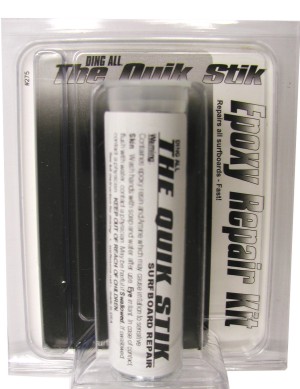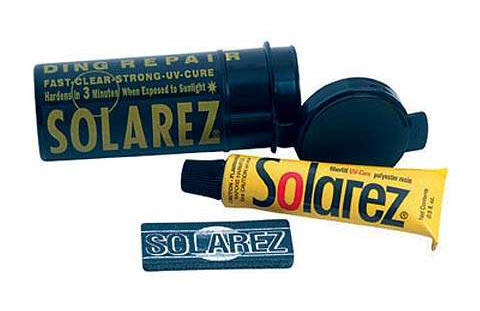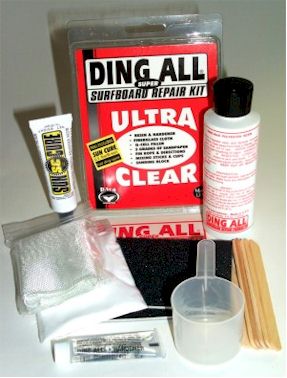Life As A Surfer
What To Do About Surfboard Dings
One of the realities of surfing is the occasional surfboard ding repair. Surfboard dings are as inevitable as they are problematic. Fortunately, SurfScience.com came up with this helpful guide to the options you have.
What Should You Do If You Ding Your Surfboard?
Before we tell you about your repair options, we want to make sure you don't make things worse. Follow these rules to prep yourself for a repair:
-Get Out of the Water: If any water gets in the ding, it just makes things more difficult.
-Dry Out Your Surfboard: Set your board with the ding pointed down so water can drip out.
-Clean the Surrounding Wax: This will make the next step easier, no matter what you choose.
Your Surfboard Ding Repair Options
Professional Repair
Cost: <2”= $20-25, >2"= $30-35
Broken Nose or Tail: $60-80
Broken board in half: $100-125
Fin Repair: Glass on $30-$50, FCS $27-$32, Future $42
Add: $11 for a gloss finish, $30 for Epoxy, and $10 for color
Time: 1-2 weeks (but sometimes a board will be "almost done" for a few months, keep that in mind if you need your board for a surf trip really soon)
Quality: This is the best option for quality, the pros will fix your surfboard good as new
The Skinny: We recommend paying a professional to repair your surfboard if there is severe structural damage on the rail or across the deck of the board. Most surf shops consider ding repair a service, not a money-maker. Remember, those guys surf too and they know how it feels to have a nasty ding to a favorite surfboard.

Do It Yourself: Putty
Cost: $7.50-$10.50
Skill Required: Minimal
Quality: Will keep your board water tight, but won't last forever
Time: One hour
The Skinny: You can use surf putty immediately following a ding to your surfboard. This substance will even harden in the water! We suggest you look at putty from The Quik Stik, Solarez, and Session Saver. These putties dry in about 20 minutes, are easy to manipulate into any ding shape and will actually harden while wet. Solarez makes a fiberfill putty that may be stronger in the long run.

Do It Yourself: Fiberfill
Cost: $10 Per Tube (Will fix multiple dings and last a while)
Skill Required: Moderate
Time: One day
Quality: Fiberfills are hard and if done well can blend in fairly well, but they have a tendency to flake out or chip away, so you might end up re-fixing it later.
The Skinny: These products are resin mixed with smaller pieces of fiberglass, adding strength and resiliency under pressure. The popular options are Solarez and Sun Cure. These brands harden with exposure to the sun and come in both PU/fiberglass and Epoxy/EPS variations, so check the label before you buy one. (If you use fiberglass resin on EPS foam you will disintegrate the board’s core.) The downside is these clumpy substances can sometimes be difficult to manipulate into the desired shape.

Do It Yourself: Resin/Fiberglas Kit
Cost: $15-25 Per Kit (Will repair a few dings and last a while)
Skill Required: Advanced
Time: 1-2 days
Quality: Once you master it, these repairs will be as good as the professionals
The Skinny: Ding repair kits are multiple step processes that include filling the ding and covering it with resin and a sheet of fiberglass. The process usually involves mixing a few batches of different chemicals and so it takes a bit more time that putty or fiberfill. However, if you find yourself getting dings frequently, it might be worth it to learn.
A special shout out to Flowbee at The Froghouse in Newport Beach for his help with this article. Mahalo!















0 Comments